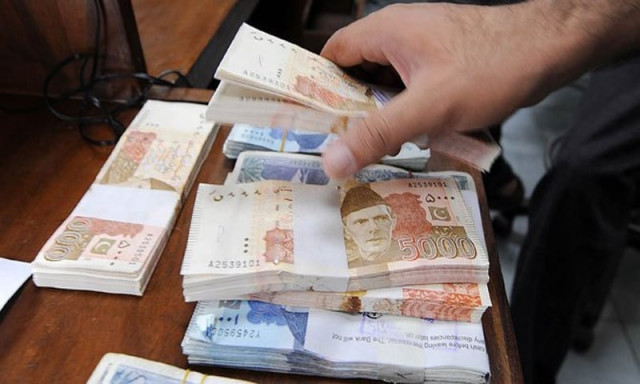Eighth review completed: IMF grants Pakistan two waivers on budget deficit
This marks the first time in the last three reviews that Pakistan had to request a waiver

PHOTO: PAKISTAN TRIBE
The IMF, which completed its eight review for the Extended Fund Facility (EFF), granted the waivers on key conditions of reducing the budget deficit and lowering borrowings from the central bank, as Islamabad had missed these two targets for the fiscal year 2014-15, which ended on June 30.
IMF Staff Concludes 8th Review Mission Under an EFF to Pakistan.
— IMF Pakistan (@imf_pakistan) August 7, 2015
The agreement was reached between Finance Minister Ishaq Dar and IMF’s Mission Chief to Pakistan Harald Finger.
Both sides discussed shifting the structure of their meetings to biannual reviews instead of quarterly reviews; however, Dar confirmed, while speaking to The Express Tribune, that no understanding had been reached "as the cash flow issue still remains unresolved."
Read: Pakistan has received $49 billion in last 10 years
Pakistan urged that the six-monthly reviews should not disrupt the cash flow plan of the remaining $2 billion. The Fund has already disbursed $4.2 billion and the remaining $2 billion is divided into four equal tranches of $500 million.
Further, the eighth review of the $6.2 billion Extended Fund Facility approved by the IMF two years earlier came under discussion during talks held in Dubai over the course of 10 days.
IMF’s programme is built on the basis of releasing a quarterly tranche of over $500 million after giving a certificate of good health to Pakistan’s economy.
Performance
It was revealed in the talks that Pakistan did not meet its end-June 2015 performance criteria on the budget deficit, with the government borrowing from the State Bank of Pakistan, as both targets were missed by small margins.
The sixth and seventh reviews were completed by Pakistan without seeking waivers, and this marks the first time in the last three reviews that it had to request a waiver.
During the first five reviews of the programme, the IMF had given Pakistan 10 waivers, which raised questions over the design of the programme and the performance of the federal government.
This, however, marks the first time in the last two years that Pakistan has had to seek a waiver on a budget deficit – a target that is considered sacrosanct in the $6.2 billion programme.
Dar revealed during talks that the budget deficit was explainable, due to which the IMF agreed to grant the waiver.
"As against the budget deficit target of 4.9% of Gross Domestic Product or Rs1,387 billion, the actual deficit widened to 5.3% of the GDP or Rs1,447 billion during the last fiscal year, which ended on June 30," the finance minster said, while addressing a press conference in Dubai.
Dar attributed blame for missing the overall budget deficit target to provincial governments, adding that they could not generate cash surpluses of Rs287 billion.
However, the core factor for missing the target was the Federal Board of Revenue’s failure to collect Rs2,810 billion in taxes despite levying Rs360 billion additional taxes in a single year.
Read: World Bank to consider approving $500m energy sector loan
The provinces get 57.5% of the federal divisible pool under the 7th National Finance Commission Award and any shortfall in collection has direct bearing on cash surpluses and subsequently on budget deficit targets.
Further, Pakistan also missed the indicative targets on tax revenue that stood at only Rs2,581 billion and accumulation of circular debt, which deviated from end-June 2015 programme targets, according to Harald Finger.
Concluding, the IMF stated that the staff-level agreement was subject to approval by the IMF management and the Executive Board. Upon completion of this review, Special Drawing Rights of Rs360 million (about US$502 million) will be made available to Pakistan, it added.



















COMMENTS
Comments are moderated and generally will be posted if they are on-topic and not abusive.
For more information, please see our Comments FAQ